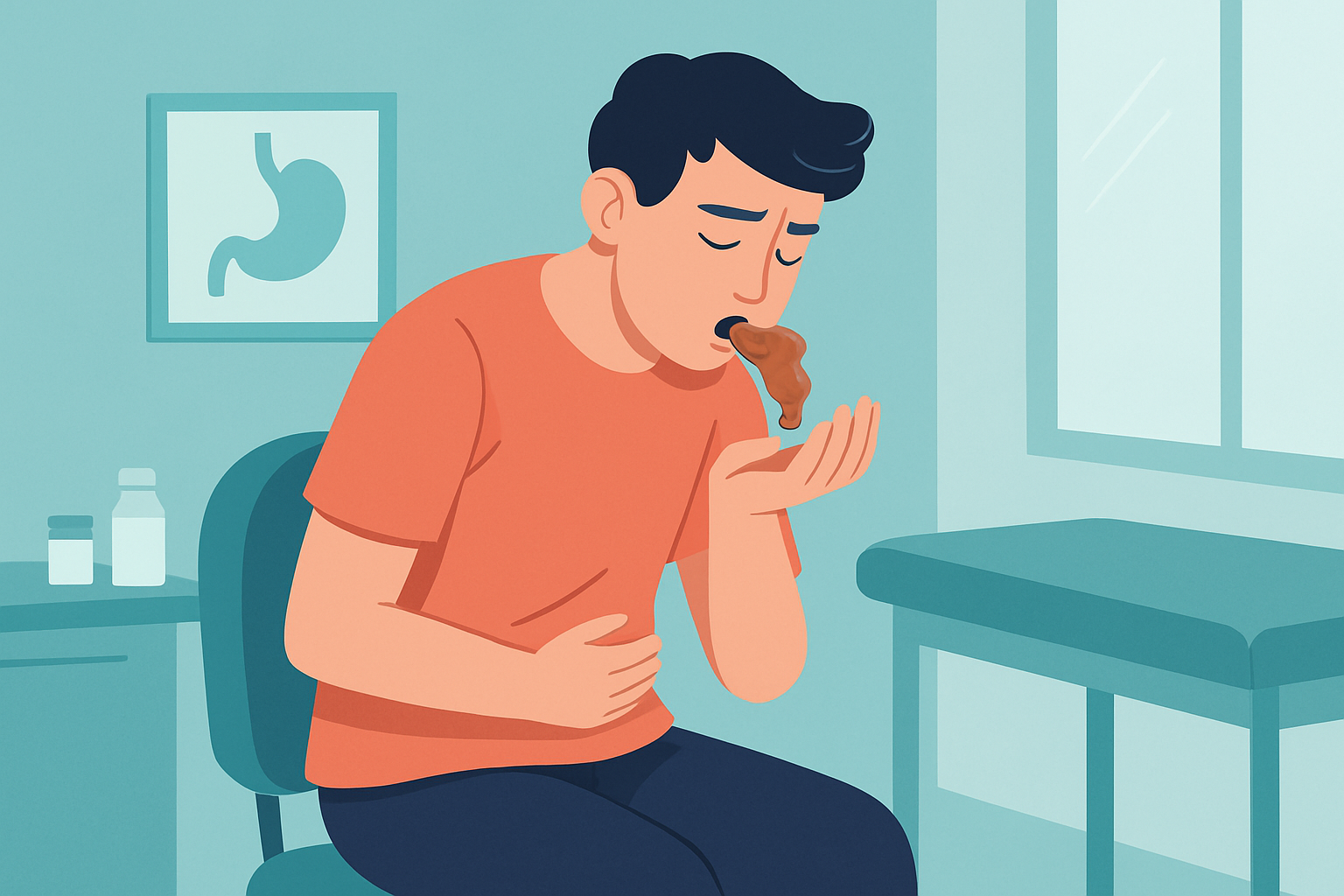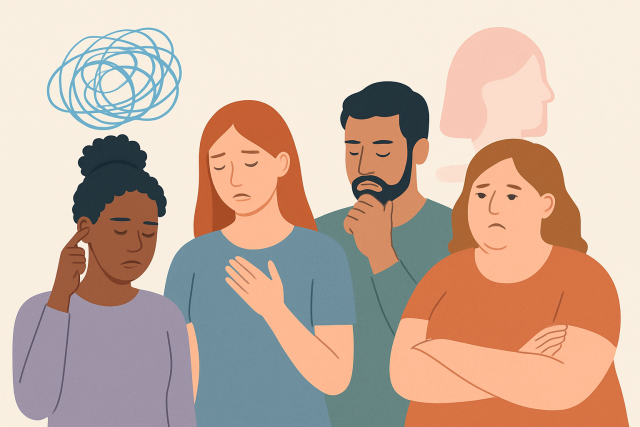
8 different types of eating disorders and how they vary
Explore the eight different types of eating disorders, understand their unique traits, and learn how...
Rumination eating disorder is an overlooked but impactful condition characterized by the repeated effortless regurgitation of recently eaten food. Unlike vomiting, people with this disorder often chew the food again before deciding to swallow it back down or spit it out usually without any nausea or discomfort.
Rumination eating disorder is a condition where a person repeatedly brings up food they have recently eaten. Sometimes they chew it again before swallowing or spitting it out. This process happens naturally without the nausea or typical gag reflex you would expect from vomiting. From a medical standpoint, it’s classified as a feeding and eating disorder and stands apart from disorders like bulimia because there is no intention to purge or shed pounds.
Rumination eating disorder seems to stem from a blend of behavioral, psychological and physiological factors that are unique to each person. Stress or anxiety often trigger regurgitation behaviors. Sometimes these are habits learned early on — even from infancy — that stubbornly stick around into adulthood. Underlying developmental disorders and some rare neurological or gastrointestinal quirks can also pitch in.
Symptoms of rumination disorder can vary but usually involve repeatedly bringing up food without the usual nausea or discomfort you would expect. The physical effects range from mild annoyances to serious malnutrition which is no small potatoes. Common behaviors might include spitting out food or looking embarrassed while eating—it’s like the whole meal has lost its charm. On the emotional front, there’s often anxiety around mealtimes and a tendency to shy away from social gatherings.
| Symptom Category | Examples |
|---|---|
| Physical Symptoms | Shedding pounds unexpectedly, unpleasant breath, teeth looking worse for wear |
| Behavioral Symptoms | Constantly bringing food back up, even spitting it out occasionally |
| Emotional Symptoms | Feeling nervous about mealtimes, bouts of embarrassment, and slowly pulling away from friends and family |

Diagnosing rumination eating disorder usually begins with a thorough look into the patient's medical history and a physical exam—basically, piecing together the puzzle by watching for telltale signs and eliminating other possibilities. Healthcare providers often dig a little deeper into the psychological side with interviews or questionnaires, trying to get a fuller picture of what is going on. They might also check the patient's teeth for any wear and tear, which can be like little clues left behind from the disorder.
Treating rumination eating disorder usually calls for a tailored approach that combines behavioral therapies and nutritional advice with medical treatment when necessary. Support from family therapy and peer groups often turns out to be a real game changer in keeping recovery on track.
Behavioral therapies are important for managing rumination eating disorder. They gently nudge patients to become aware of the automatic subconscious habit of regurgitation and guide them step-by-step through healthier coping skills and alternative behaviors. Therapists do more than just teach—they create a safe supportive space where deeper emotional issues like anxiety or trauma can finally be untangled and addressed. This really helps reduce the chance of relapse.
"Kicking off tailored behavioral therapies sooner rather than later can truly change the game when it comes to improving quality of life for people dealing with rumination eating disorder. From my experience, when this condition is caught and addressed early on, patients often find themselves getting a better handle on their eating habits and stepping up their nutritional health in meaningful ways." – Dr. Emily Harper, Clinical Psychologist
Dealing with rumination eating disorder on a daily basis calls for some down-to-earth, practical approaches that help ease those awkward moments and give nutrition a much-needed boost. Both patients and caregivers often find clever ways to manage the stubborn urges while keeping diets nicely balanced.
Rumination eating disorder often gets a bad rap for being misunderstood. Many people mix it up with bulimia or assume it involves purposely vomiting, but in most cases it does not come with the nausea or purging we usually associate with those disorders. It’s not just a thing that happens to babies either. It can affect people of all ages. Another myth that tends to stick around is the idea that poor parenting causes it or that someone can simply snap out of it without professional guidance.
If you or someone close to you is facing significant weight loss, signs of malnutrition, or symptoms of rumination eating disorder - including worsening physical symptoms or emotional distress tied to eating habits - it's important to seek medical or psychological help sooner rather than later.

Explore the eight different types of eating disorders, understand their unique traits, and learn how...

Anorexia nervosa often evokes images of extreme thinness, but can you be overweight and anorexic? Th...

Pica disorder involves the persistent eating of non-food substances. Learn what causes this conditio...

Language processing disorder impacts how children understand and use language. Learn to recognize ea...